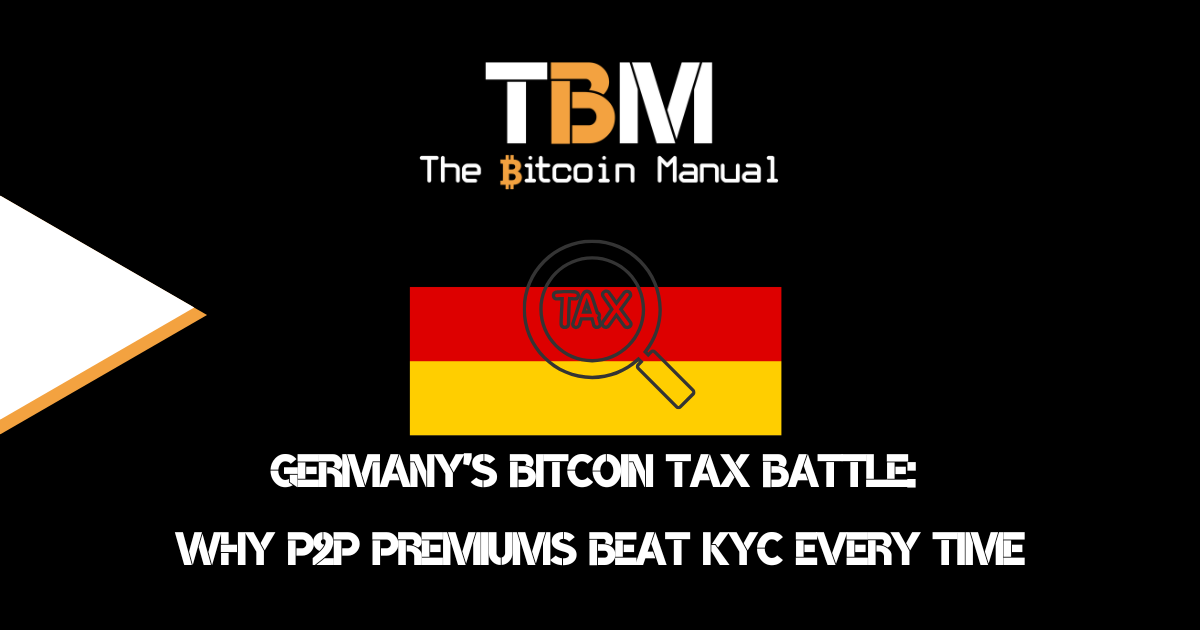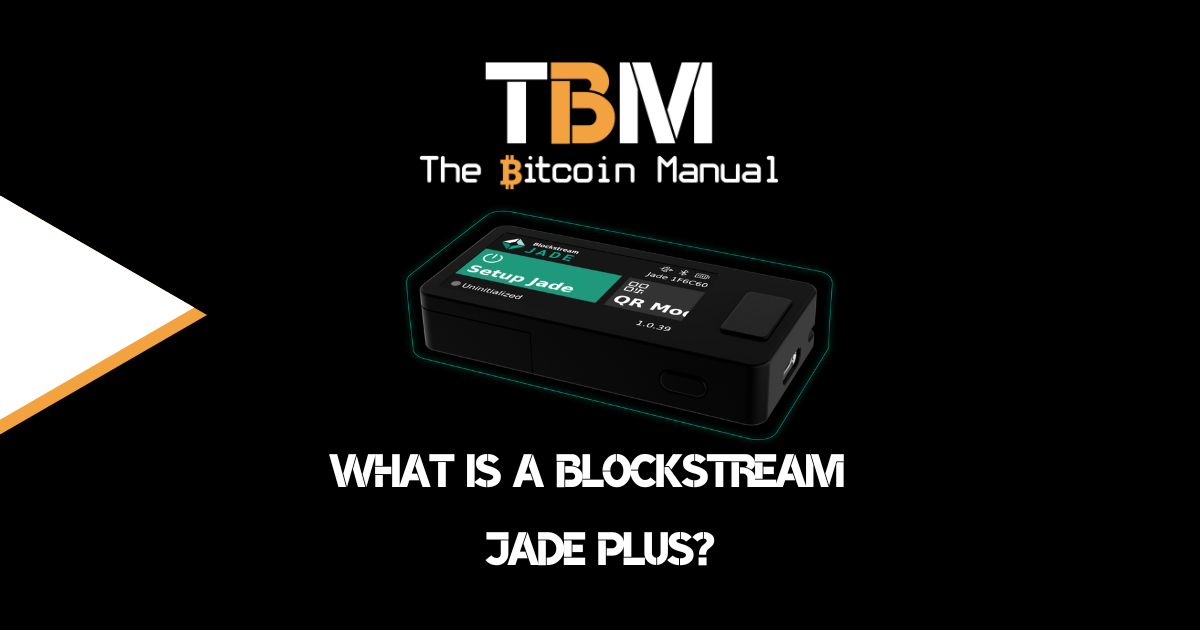The idea of a digital asset that can hold value across space and time is a revolutionary discovery; one man is still getting to grips with using it effectively. Like any discovery of any value, bitcoin will be lost, misused, stored incorrectly, stolen, and destroyed. As time goes by, human negligence, poor planning, and lack of understanding will see more and more coins lost forever.
Coming to grips with digital value will eventually lead to the idea or rather conversation on how this value will be maintained once you are no longer around. You worked hard for your money; if you’ve stored it in bitcoin, you obviously don’t want your purchasing power debased by inflation. You want to enjoy the fruits of your labour, and you may do that when you retire.
However, you may have more than you need to retire, and some of that could be leftover, so what do you do with it? As long as people are mining bitcoin and running bitcoin nodes, your bitcoin remains in pristine condition, the same way you found it.
My bitcoin dies with me.
Before we tackle the idea of passing down custody, the first option, which could be intentional or unintentional, is that your bitcoin will be tethered to you as long as you are alive. You maintain your keys by memory or in a way no one else can access, and when you die, your bitcoin can never be accessed by anyone.
That value is not lost forever; all it means is that bitcoiners who hold a stake today and can use those claims now have a more significant share of the network and a claim to more of the overall purchasing power stored in the network.
If you’re not keen on leaving funds for anyone and don’t feel like donating them to a charity or setting up a trust, then diamond handing your bitcoin in the afterlife is an option.
It’s going up forever, laura.
If you subscribe to the idea that bitcoin will continue to increase in value due to its increased demand and scarcity, finding new equilibriums each year, then the satoshis even dust transactions you have today will be worthwhile keeping for others in the future. It would make sense to leave some for future generations, should you have a family you want to support or want to create trust once you pass on.
Where do you store your bitcoin?
None of us will know when our time here is done, so we need to ensure that if we are to pass on our bitcoin, our loved ones have a clue where to find it.
Exchanges and custodial wallets
If you hold bitcoin on a platform like an exchange or CEFI service where you don’t own the keys and hand over ownership to them on your behalf, your heirs will have to go through probate — a lengthy (and often costly) legal process — to get the money out. If you have a will, your family can take it to probate court and get special documents called letters testamentary, and provide those to the exchange, like they would any other account without a beneficiary designation.
Non-custodial wallets
Seasoned bitcoiners or rather responsible bitcoiners tend to hold their assets in a non-custodial wallet, which is an assigned address on-chain using public and private key pairs, that lets users send and receive bitcoin.
To inherit bitcoin stored in a non-custodial wallet, a loved one must know:
- The asset exists.
- Where to find it.
- How to access it via private key.
That means your trusted person must know the exact sequence of alphanumeric characters that make up your wallet key.
Estate planning
If you’re planning to leave your bitcoin for your family and want to ensure that they have the steps to access it in the future, you may want to consider the following steps.
Create a will to and power of attorney documents to outline who would handle your bitcoin
The first piece of your emergency plan should be a will and power of attorney documents. If you’ve left your bitcoin on an exchange, custodial service (which you shouldn’t do), or own Bitcoin ETF, then you’ll need to have these documents created. ,
Most bitcoin exchanges and digital asset platforms require a copy of a will or POA document before they will confirm that your assets exist and allow your executor to access them. Your will sets out who inherits your assets when you pass away and who should take on critical roles like a guardian for minor children and executor for distributing your estate.
On the other hand, a power of attorney appoints someone to manage your assets while you’re alive but incapacitated due to illness or injury. These two documents are crucial to avoid having the court make decisions about your digital assets, which can cause delays and added costs for loved ones.
Create an up-to-date asset list that includes digital assets
An asset list is an essential component of an emergency plan that compliments your will and power of attorney documents. Making a complete, up-to-date list of assets and storing it with your will prevents your bitcoin assets from being forgotten (since there is no central body that your loved ones can ask).
You will need to specify not only where your bitcoin is held; for example
- Cold wallet
- Hot wallet
- Lightning channels
- Liquid Bitcoin
- Your node
- Your exchange wallets
- Your private keys
- Your multi-sig keys
- Your duress password
- Your mining equipment
- Does your bitcoin contain a time lock or covenant
So your custodians can know where to look and where to apply the private keys to gain access and broadcast and sign for those funds to be moved.
Make a plan to share passwords and grant access to your accounts
You’re bitcoin, if stored correctly with a non-custodial wallet, is protected as a private key; if you’ve stored it with a custodian, it most likely has a User name, password, and 2FA method. Without your password or key, your loved ones won’t be able to gain access to your cryptocurrency.
For the love of ALL things bitcoin, please do not store your passwords or private keys on anything with a consistent internet connection or access to a cloud service provider.
Avoid adding passwords to cloud notes, images, or documents on computers, and do not use password managers like 1Password to record important information for accessing your bitcoin assets. Ensure that you have physical copies of your private keys or passwords and have a safe place to store them.
You have no idea if the digital devices you use today will be lost, broken, or compromised in the future, so the best course of action is to store them in a robust analog method.
Managed multi-sig services and estate planning
If you are storing your keys in a physical place, then sharing the combination to your safe or where your keys are located can be bad security measures. You’re leaving yourself open to third-party attacks; the digital executor means they could potentially access it before your death.
If you’d prefer not to do that, find out if the institution where your safe deposit box is located allows the designation of a successor upon death. This means your digital executor would only be able to get into your safe deposit box following your death; again, this is no guarantee your funds will make it to loved ones in the end.
An alternative is to do your estate planning through managed multi-sig vaults. Companies like Casa and Unchained capital offer a bitcoin inheritance service that allows you to pass your Bitcoin to your beneficiaries securely, with everyone holding one key as part of a set. The service aims to minimise the risk of someone stumbling across your instructions and accessing your bitcoin themselves.
Don’t give your bitcoin to the big daddy government
If you think all of this is a pain, here’s some final motivation. If you don’t leave your bitcoin to someone before you die, then the coins will be disposed of at your death.
The disposition of your bitcoin will be a taxable event for your estate and could result in a hefty capital gain; depending on when you die, governments may dump your bitcoin for fiat to pay the taxes or worse, keep your bitcoin. You can avoid this unfortunate event by assigning your loved ones as bitcoin beneficiaries.
If you don’t want to fund the state with your bitcoin, you better start making a plan for your sats once you’re no longer with us.
Planning for hyperbitcoinisation
Have you started planning for a future where bitcoin continues on while you’ve long since moved on from the bitcoin citadels? Let us know in the comments down below.




